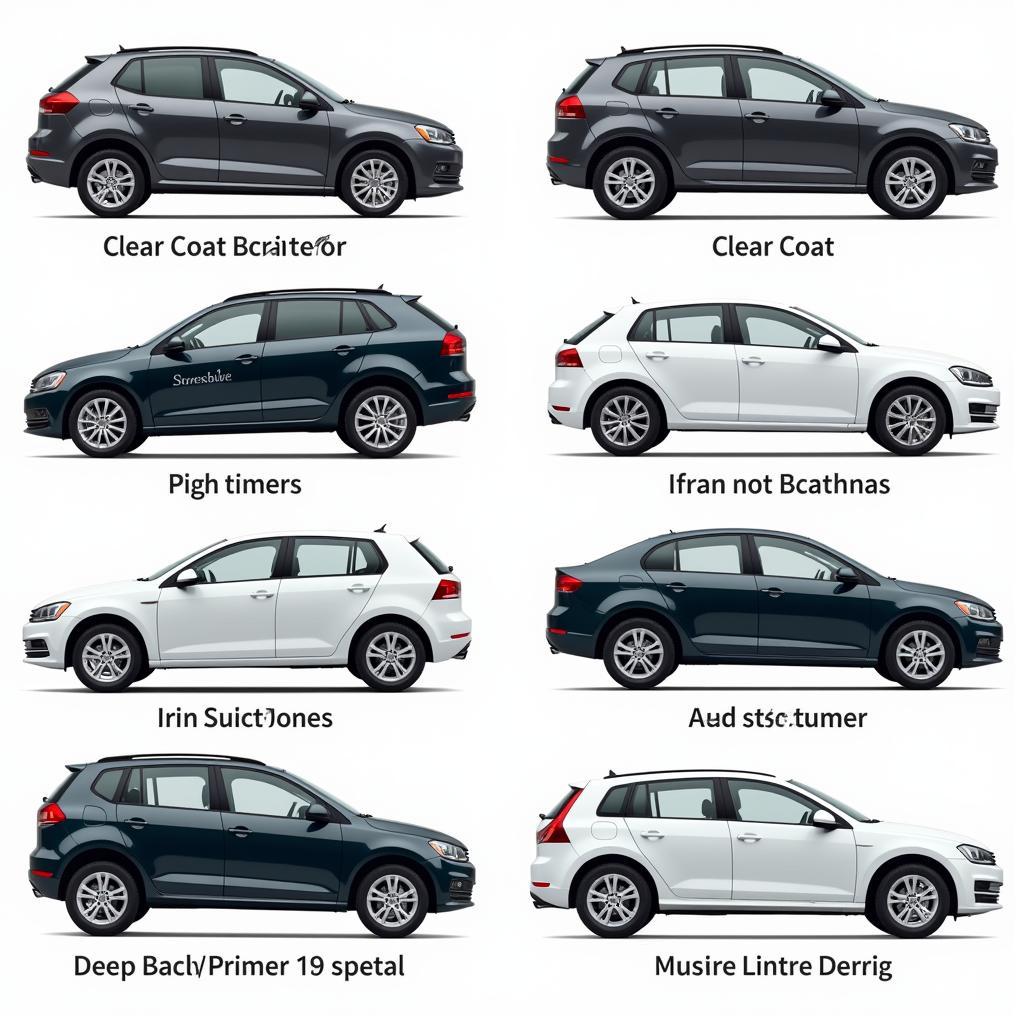German cars are renowned for their engineering excellence, performance, and luxury. However, their complexity can also present unique challenges when it comes to maintenance and repair. This guide provides valuable insights and practical tips for both German car owners and those working in the automotive repair industry.
Understanding German Car Maintenance: A Deeper Dive
German cars, particularly those from brands like Audi, BMW, Mercedes-Benz, and Volkswagen, often utilize advanced technologies and intricate systems. This sophistication requires specialized knowledge and tools for proper maintenance and repair. Understanding these intricacies is crucial for keeping your German car running smoothly and avoiding costly repairs.
Key Considerations for German Car Maintenance
- Regular Service Intervals: German car manufacturers recommend specific service intervals based on mileage and time. Following these recommendations is essential for maintaining optimal performance and preventing potential problems.
- Specialized Parts and Fluids: Many German cars require specific parts and fluids that are designed to meet their demanding performance standards. Using incorrect parts or fluids can compromise performance and lead to premature wear.
- Diagnostic Tools and Software: Modern German cars rely heavily on electronic systems and sophisticated computer modules. Access to advanced diagnostic tools and software is often necessary for accurate troubleshooting and repair.
- Certified Technicians: Working with certified technicians who specialize in German cars is highly recommended. They possess the expertise and specialized knowledge to handle complex repairs and ensure the integrity of your vehicle.
Common German Car Maintenance Tasks
Oil Changes:
- Frequency: Oil changes are crucial for maintaining engine health. Refer to your owner’s manual for the recommended service intervals.
- Oil Type: German cars often require specific oil types, such as synthetic oils, to meet their performance standards.
- Oil Filter: Ensure you use a high-quality oil filter that is compatible with your specific engine model.
Brake System:
- Inspection: Regularly inspect your brake pads and rotors for wear.
- Fluid Change: Brake fluid should be replaced every two years or as recommended by your owner’s manual.
- Sensor Check: Ensure your brake wear sensors are functioning properly.
Cooling System:
- Fluid Flush: Flush and replace your coolant every few years.
- Inspection: Check for leaks, corrosion, and proper hose connections.
- Thermostat Check: Ensure your thermostat is operating correctly.
Spark Plugs:
- Replacement: Replace spark plugs according to the recommended service intervals.
- Type: Use the correct spark plug type specified for your engine.
Air Filter:
- Replacement: Replace your air filter every 12,000 to 15,000 miles or as needed.
- Type: Use a high-quality air filter designed for your car.
Fuel Filter:
- Replacement: Replace your fuel filter every 30,000 to 60,000 miles or as needed.
- Type: Ensure you use a fuel filter compatible with your vehicle.
Transmission Fluid:
- Replacement: Replace transmission fluid according to the manufacturer’s recommendations.
- Type: Use the correct type of transmission fluid for your car.
Common German Car Repair Issues and Solutions
“My German car is throwing a check engine light!”
“It’s common for German cars to have complex electronic systems that can trigger a check engine light for a variety of reasons. It’s important to have the code read and diagnosed by a certified technician to determine the root cause.” – John Smith, Master Technician
“I’m hearing strange noises coming from my engine.”
“This could indicate a problem with the engine, such as a worn-out timing chain, faulty valve lifters, or a broken engine mount. It’s essential to get it inspected by a professional mechanic as soon as possible.” – Sarah Lee, Automotive Specialist
“My car is losing power and accelerating slowly.”
“Several factors can contribute to loss of power, including a clogged air filter, faulty oxygen sensor, or a malfunctioning mass airflow sensor. A professional diagnosis is necessary to identify the issue.” – David Garcia, Auto Repair Expert
Tips for German Car Owners
- Keep Up with Maintenance: Regular maintenance is crucial for preventing costly repairs.
- Use Quality Parts: Always use genuine OEM parts or high-quality aftermarket parts that meet the specifications of your car.
- Consult with a Specialist: Seek out a certified technician specializing in German cars for repairs and maintenance.
- Understand Warning Lights: Be familiar with the meaning of different warning lights on your dashboard.
- Read Your Owner’s Manual: The owner’s manual provides important information about maintenance schedules, recommended fluids, and troubleshooting tips.
Conclusion
Owning a German car can be an incredibly rewarding experience, but it requires a proactive approach to maintenance and repair. By following these tips and working with qualified technicians, you can ensure your German car delivers years of reliable performance and driving pleasure.
Need help with your German car?
Don’t hesitate to contact AutoTipPro for expert advice and professional services.
Contact Us:
Phone: +1 (641) 206-8880
Office: 500 N St Mary’s St, San Antonio, TX 78205, United States
FAQ
Q: How often should I service my German car?
A: German car manufacturers recommend specific service intervals based on mileage and time. Refer to your owner’s manual for the recommended schedules.
Q: What are the most common maintenance items for German cars?
A: Common maintenance items include oil changes, brake inspections, cooling system flushes, spark plug replacements, air filter changes, and fuel filter replacements.
Q: What should I do if my German car throws a check engine light?
A: Get the code read and diagnosed by a certified technician to determine the root cause.
Q: How can I find a certified technician who specializes in German cars?
A: Look for technicians who are certified by the manufacturer or by reputable organizations like the ASE (Automotive Service Excellence).
Q: What are the benefits of using genuine OEM parts for my German car?
A: OEM parts are designed to meet the exact specifications of your car and ensure optimal performance and longevity.





Leave a Reply